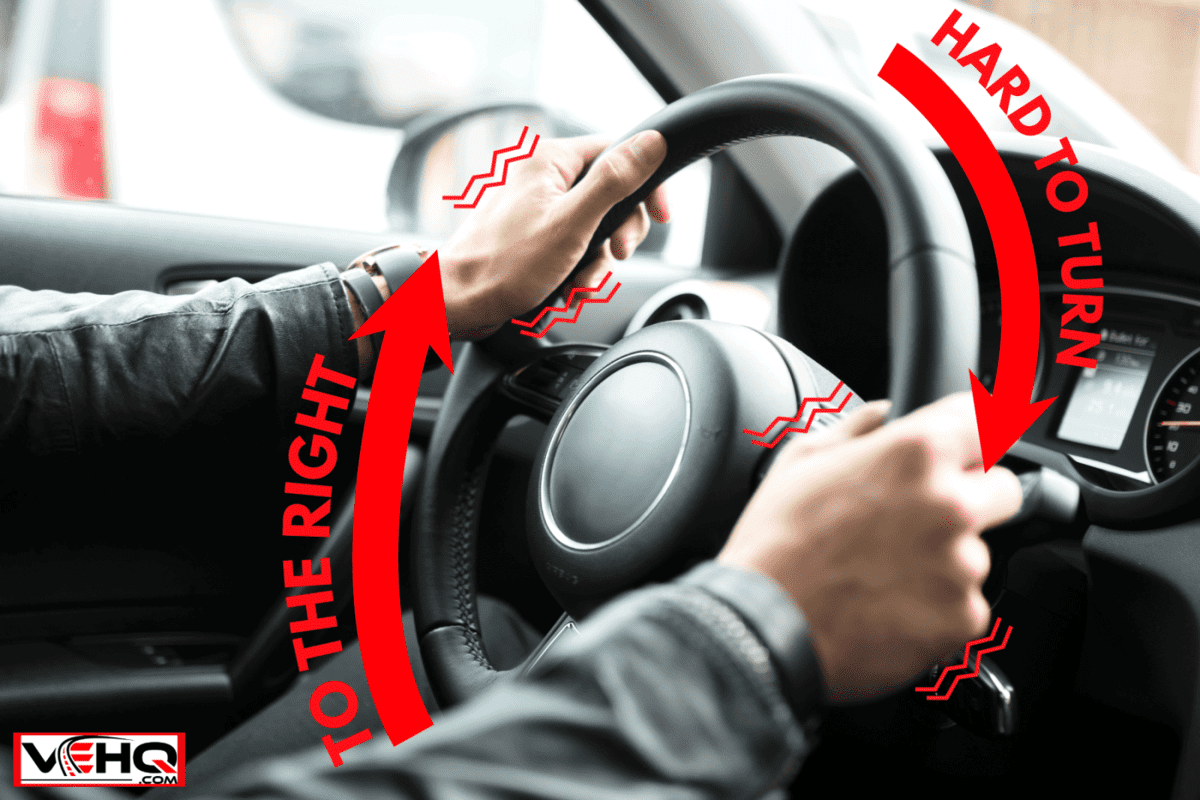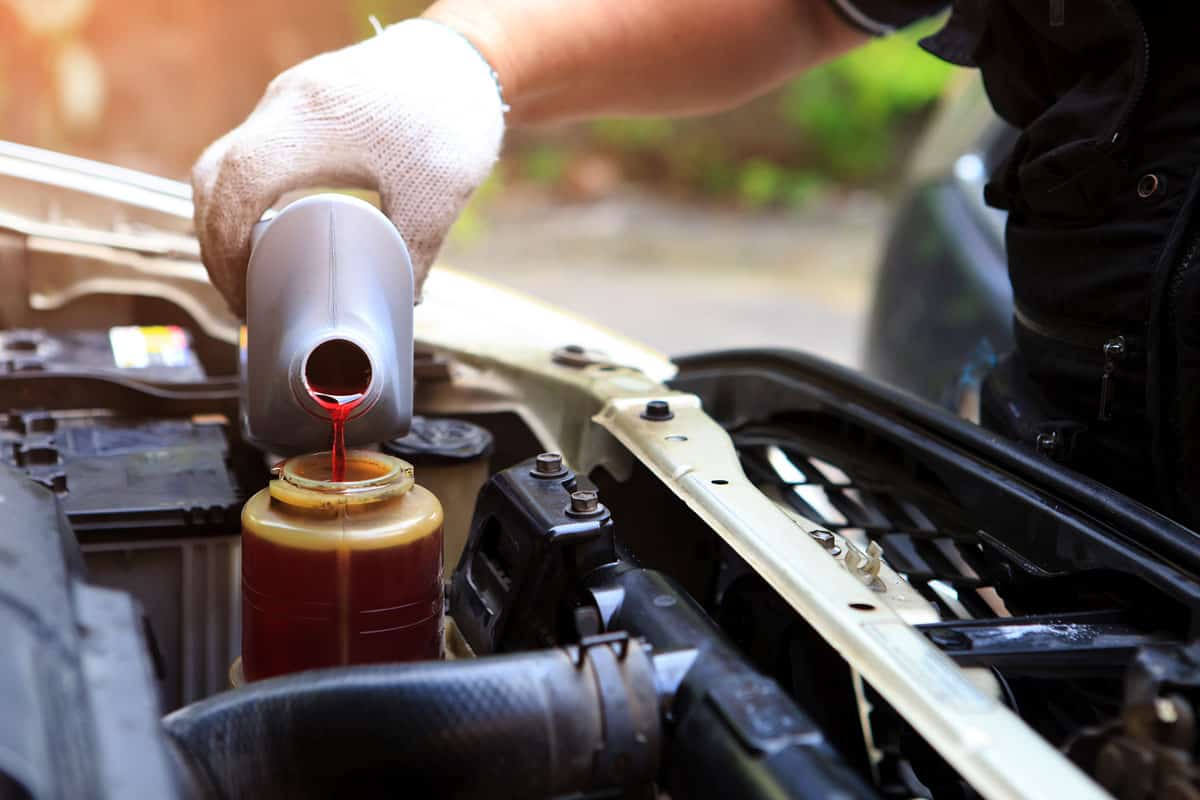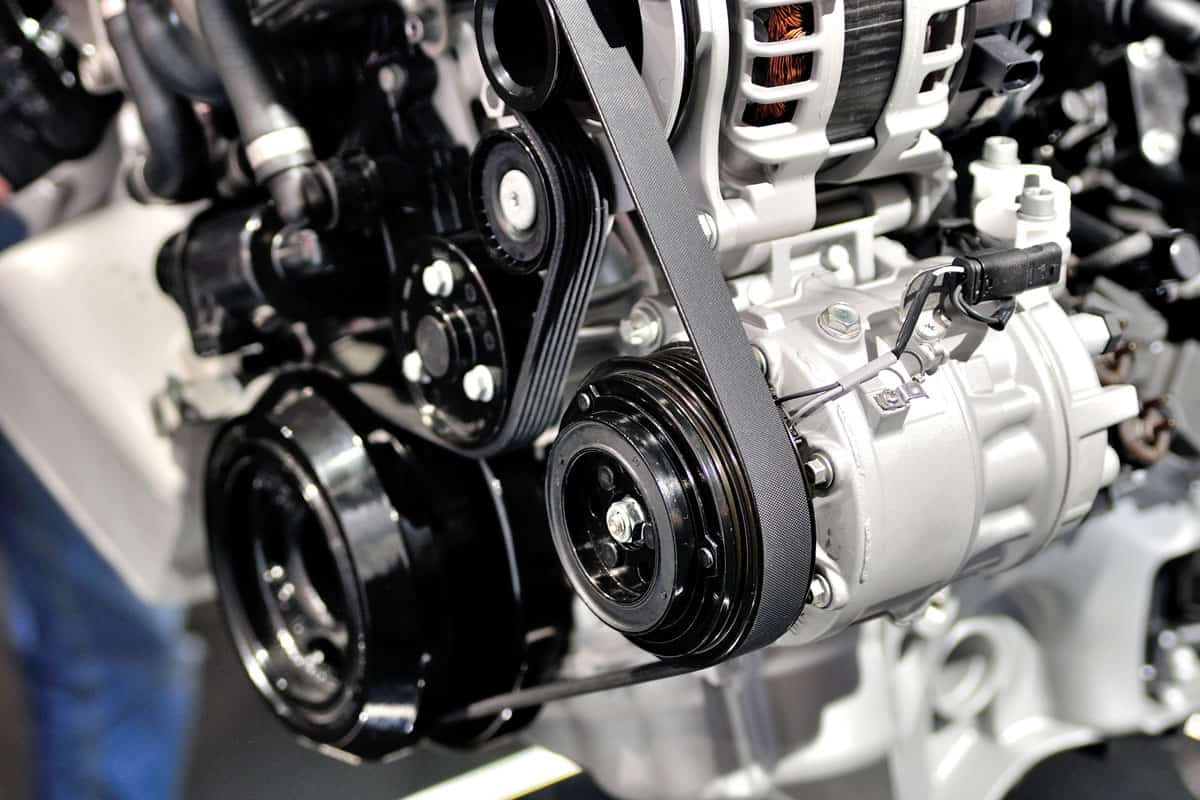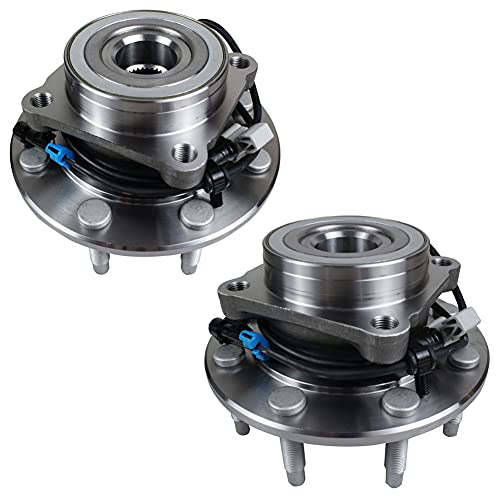While on the road, you suddenly find it difficult to turn your steering to the right, or it refuses to budge. This can be frustrating and scary. What could be wrong, and what can you do about it? We researched these questions and have answers to share with you.
When you can't turn your steering wheel to the right, the cause of the problem is usually a faulty gearbox. But you should also note that this problem can still occur while your gearbox is functioning properly. That is why proper diagnosis is needed to correctly identify what is causing your steering wheel not to turn right.
Are you interested in finding out why your steering wheel refuses to turn and the solutions to this problem? Then continue reading as we will be discussing these and other issues below, including understanding the signs that your steering wheel is about to malfunction, how to maintain your steering system so that it lasts longer, and more.

What Is Causing Your Steering Wheel Not To Turn To The Right?
The steering wheel is an essential component of your car. You use it to change lanes, turn right or left, avoid potholes, or maneuver into a parking spot. It is what connects the driver to the vehicle.
It is the central part of the car, which dictates what in direction it will be moving. So having a malfunctioning steering wheel also leads to an unusable vehicle.

This is why innovations like power steering were invented. This system uses your car's engine power to make the steering wheel operation smoother and more effortless.
When experiencing steering problems, the problem can either be from your gearbox or outside of your gearbox. Below are detailed explanations of the two.
Problems In Your Gearbox
Problems originating from your gearbox that would affect the proper function of the steering wheel may include:
Low Steering Fluid
Steering fluid is needed to pressurize the system while lubricating the pump. If the fluid is less than required, you will feel your steering get harder to maneuver. You may be able to drive for some distance, but eventually, your steering will stop turning.
A cracked or loose hose can cause the steering fluid to leak and can only be solved by repairing the crack or tightening the hose.
Steering Fluid Gone Bad

The steering fluid can also go bad with time. It can become too thick and subsequently lose its capacity to lubricate effectively. To solve this problem, drain this fluid and refill it with a new steering liquid like the one shown below.
This is a steering fluid that you can find on Amazon.
Faulty Steering Pump
The steering pump in your car produces the right amount of pressure needed to turn the steering wheel easily. When faulty, you can find it strenuous to turn the wheel.
You will hear a buzzing sound when the pump is faulty. The solution is to take the car to your mechanic to check it out. Steering pumps like the one shown below can last for the lifetime of your car and will need to be replaced only when broken.
Click here to see Honda Civic steering wheel on Amazon.
Damaged Serpentine Belt

A serpentine belt that is wearing out begins to stiffen. When it breaks, the steering wheel halts and will not budge. It can also become loose and impede the turning of the steering.
Faulty Steering Rack
The rack and pinion, as illustrated above, are also known as the steering rack. This assembly in your car allows your wheels to rotate and move from side to side when you turn the steering wheel.
When this rack is exposed to varying temperatures and debris from the road, it can get damaged. Furthermore, the bushings inside can also get damaged, causing a problem with your steering wheel.
Problems Unrelated To The Gearbox
Some problems with your steering are not related to the gearbox and come from other parts of your car, including:
Low Or Differing Tire Pressure
Over-deflated or under-deflated tires can cause your steering wheel to start dragging. That is why you need to check the pressure in your tires frequently and adjust when needed.
Overloading Your Car
Overloading can throw your car off balance in the front end steering, making driving uncomfortable. With too much weight at the back, you will experience a delay in turning your steering, making you feel out of control.
Improper Front-End Alignment
Tires that are out of alignment can cause the car to drag to the sides, making it difficult to grip your steering wheel firmly. If you notice your car is pulling too far in one direction, take it immediately to your mechanic to have the tires aligned properly.
Misalignment can compromise your safety on the road, with a high likelihood of causing an accident.
Using The Wrong Steering Fluid or Failure To Fill The Fluid Reservoir
Failing to fill the fluid reservoir to the recommended levels or using the wrong type of fluid will hinder your steering wheel from turning.
Worn Wheel Bearings
This front wheel bearing hub assembly is suitable for a Chevy on Amazon.
The lubricated wheel bearings in your car allow your tires and wheels to spin easily. When the bearings start wearing out, you will hear a vibrating sound from your steering wheel. You will notice this when driving at low speeds but it worsens as you accelerate.
Loose Wheel
When your steering is moving freely, you will not be able to control it. You may notice it going further than you intended as you turn to the right, making it difficult to turn back to the left and into a straight line. This is very dangerous and should be addressed by a mechanic as soon as possible.
Symptoms Of Steering System Going Bad

A failing steering system has adverse effects on your safety while on the road. You can look out for signs that can warn you early that your steering system is going bad. They include:
Noise As You Turn
If you hear whining noises in your car, it could be a sign that your power steering rack is worn out. Take it immediately for an inspection.
Steering Wheel Playing Too Much
When your steering wheel plays too much, it will be challenging to turn the wheel on time. Take it to your mechanic to correct this problem.
Vibrating Steering Wheel
There are myriad problems that would cause your steering to vibrate. However, if you are turning a corner and it vibrates, it indicates your steering system has low-pressure fluid.
Smell Of Burning Oil
If you smell burning oil, it could be due to steering fluid leaking into a part of your car that is overheating, such as the gearbox. Burning steering fluid smells like burning oil.
You should take even the slightest hint of this smell seriously. An overheating steering gearbox can cause a fire to start in your car.
Leaking Brake Fluid
If you notice a puddle of oil on the ground below your car, it could mean your brake fluid is leaking. This causes low pressure leading to problems with your steering system. It can become hard to turn.
Car Moving To One Side As You Drive
If your car moves to one side as you drive, your steering system could fail. The likely cause for this is wheel misalignment. The components of this system could also be worn out.
How To Maintain Your Steering Wheel System In Good Condition

Your steering wheel is an important component of your car. It can jeopardize your safety on the road if it's not working properly. This is why you need to maintain it in good condition. Tips on how to do this include:
Ensure Fluid Is Clean And At The Correct Level
Steering fluid that is not filled to the correct level in the fluid reservoir can lead to the steering wheel not functioning properly. Keep an eye out for any leaks or old fluid. Have your mechanic check the steering fluid regularly.
Have The Hoses Checked
Cracked or loose hoses can cause steering fluid to leak, making it tougher to turn your steering wheel. Have your hoses inspected regularly for cracks or wear.
Be Watchful For Symptoms Of Failure
As we mentioned earlier, vigilance when it comes to noticing possible early signs of a faulty steering wheel can make a difference. Odd noises while turning, stiff steering, and difficulty steering, among other symptoms, should be taken seriously and addressed immediately.
In Closing

A steering wheel that is stiff or does not turn properly can be dangerous. That is why it is important to know the signs when your steering wheel is about to fail. It will enable you to take action early.
Reasons for your steering system failure can be due to faulty parts in the gearbox, parts that are worn out, or tires that are out of alignment. It could also fail due to other parts of your car unrelated to the gearbox.
We have included tips on how to keep your steering wheel in good condition. For more information, check out these related posts:



